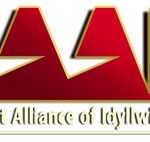It’s October. The air is a bit cooler and the breezes are fresh. We trying to stay COVID-free, are either taking or avoiding taking our flu shots, and perhaps, deciding about the pneumonia vaccine. Maybe we are even thinking about the health awareness topics for October.
October is that month annually when our health awareness topics include breast cancer, which can impact men as well as women, although, most often women, and one other major, often overlooked, public health topic, domestic violence (DV).
Information on breast cancer will pop up everywhere this month as responsible campaigns take off with the aim to inform all of us on this very serious illness. Yet, we won’t often see reminders or information about domestic violence. That one, Domestic Violence Awareness is the one most often ignored, forgotten or avoided. It also impacts men as well as women — although, most often women.
So, let it be duly noted: October is Domestic Violence Awareness month.
While we may not be able to prevent breast cancer, we can prevent DV. And for either, we can certainly engage in early intervention, which may very well save lives.
Being informed about the signs of DV and learning ways to carefully share resources or offer other help is a critical first step to intervention.
Here is at least one national, well-respected and responsible leader in DV prevention and intervention — National Domestic Violence Hotline. The Hotline, as it is called, is available to callers “24/7/365” at 1-800-799-7233 and 1-800-787-3224 (TTY).
They also have services in Spanish. In continuous operation since 1995, The Hotline is the only 24/7 center in the nation that has access to service providers and safe houses across the U.S., thanks to the Texas Council on Family Violence which received a $1 million grant that established The Hotline.
Most importantly, they will provide you with strict confidentiality. No steps of any kind are taken unless you consent and they can help you and your children get away to a DV safe house where you will not be able to be found. Safe houses are operated by nonprofit organizations well-trained in helping adult victims of DV and their children get away, get safe and develop a new life.
Safe houses also provide care and medical/psychological help for you and the children as needed. The programs at DV safe houses include training to be self-sufficient and capable of making your way in life on your own terms.
If you can identify with any of the following, you might want to make a call to The Hotline, just to talk about it:
• You frequently make excuses for your partner’s behavior to friends and family.
• You find yourself hiding and withholding information from friends and family so you don’t have to explain or make excuses.
• You know something is terribly wrong, but you can never quite express what it is, even to yourself.
• You start lying to avoid your partner’s put downs and reality twists.
• You have trouble making simple decisions.
• You have lost control over your own finances.
• You have the sense that you used to be a very different person — more confident, more fun-loving and more relaxed.
• You wonder if you are a “good enough” partner.
• You feel hopeless and joyless.
• You feel as if you can’t do anything right.
• Have you lost control over any decision-making in your family?
• Have you lost control of the finances?
• Do you wish you could get out but stay for the sake of the children?
Please know that children who grow up surrounded by family violence almost always go on to repeated experiences of DV in their adult lives.
The above may be thought of as more subtle signs. On the other hand, if you can identify with any of the following, please do reach out for trained help. Call that HOTLINE number.
• Are you being hurt at home or by your partner?
• Are you being slapped?
• Are you being pushed?
• Are you being kicked?
• Are you being hit?
Here’s that number again: 1-800-799-7233; 1-800-787-3224 (TTY).
Nothing in this article is meant to be medical advice. Please consult your health care provider.
Please see:
https://ncadv.org/take-action
https://www.thehotline.org/
https://www.thehotline.org/privacy-policy/
https://www.theduluthmodel.org/wheels/
Callie Wight is a California state-licensed registered nurse with a Master of Arts in psychology.









